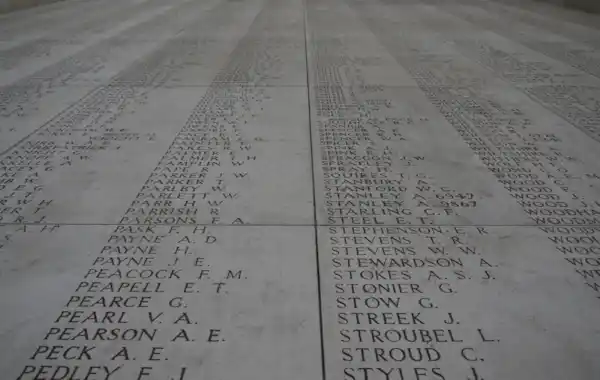10 May 2017
|
The more names we collect as family historians, the more ancestors we can investigate and the bigger and better our family tree will grow. Use our pick of the top 3 name-rich genealogy records to find your ancestors.
The more names we collect as family historians, the more ancestors we can investigate and the bigger and better our family tree will grow. Use our pick of the top 3 name-rich genealogy records to find your ancestors.
Family history research usually begins with names. We ask our parents and older relatives for the names of family members that they remember. Sometimes we come across names in a Family Bible or a set of letters. Armed with these initial names, we can set off on our journey into archives and online databases, collecting copies of records as we go.
It's simple really: the more names we have, the more sources we can investigate. An unusual name is often easier to find than a John or Jane Smith, however, even with seemingly unique names, family history researchers should always explore the records as widely as possible.
We use local histories, social history records and documents relating to religious history, but in genealogy our aim is to build a pedigree chart packed with names.
Here are just 3 of the sources that are richest in the ultimate genealogical treasure – names.
1. The Census
Currently online from 1841-1911, the census for England and Wales was designed to contain the names of all household members and is perhaps the best general family history record we have. As well as ancestors, we can often discover the names of family members (and so add further names to our trees), neighbours, fellow inmates, employers and others.
Use various online databases such as FamilySearch and FreeCEN and commercial genealogy websites, including Ancestry, TheGenealogist and Findmypast.
For the full Scottish census, visit ScotlandsPeople and for the freely accessible 1901 and 1911 Censuses for Ireland go to The National Archives of Ireland website.
2. BMD certificates
Birth, marriage and death certificates (from 1837 in England and Wales, later in Scotland and Ireland) contain some of the most valuable names in our family history research. They can also contain surprising names and clues that you’ll want to investigate further. Find out more here.
3. 1939 Register
Records relating to the Second World War can be hard to find, especially as service records are not yet in the public domain. The 1939 Register dates from the first month of the war and lists the names of those living with your ancestor on 29 September, as well as the neighbours (note names of anyone still living or under the age of 100 are hidden). This is an excellent tool for helping today’s family historians identify relatives from this period. The 1939 Register can be accessed via commercial genealogy website Findmypast or for free on site at The National Archives at Kew. Get more free Getting Started hints, tips and tricks here.








